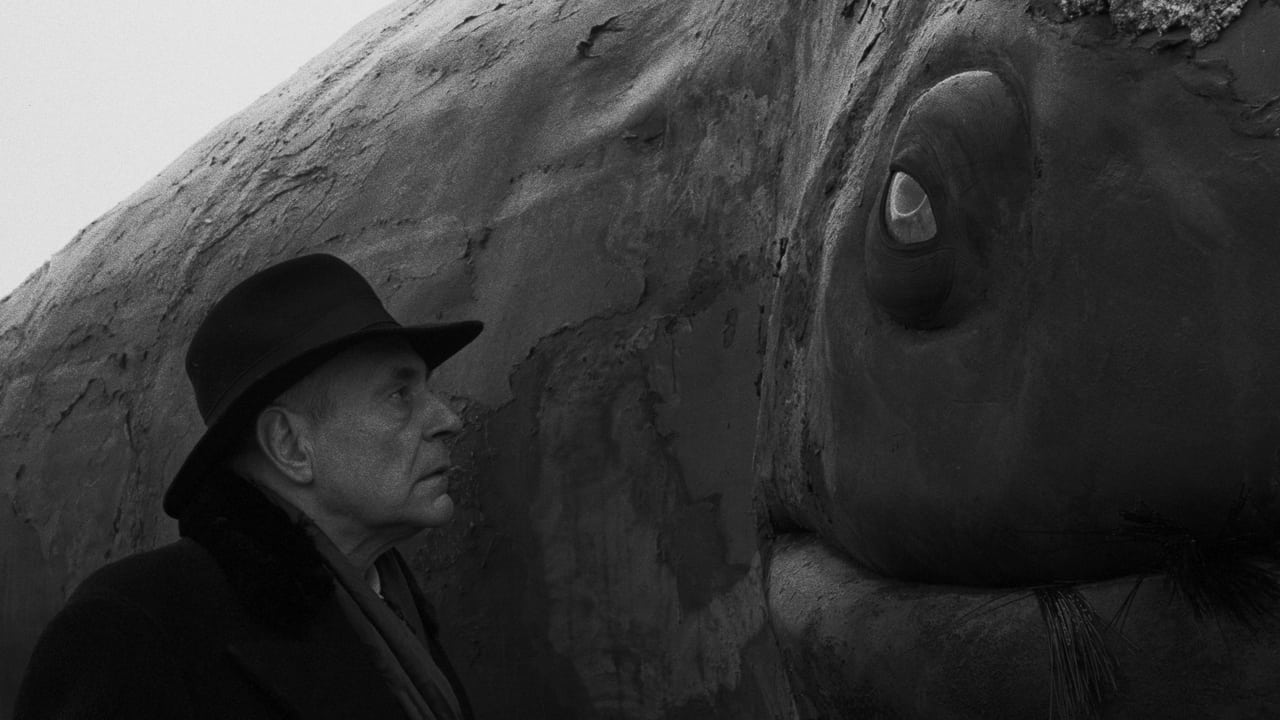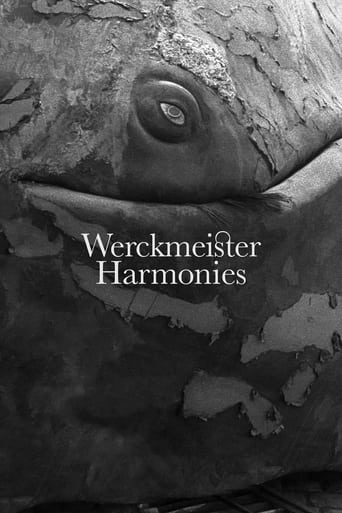Hellen
I like the storyline of this show,it attract me so much
Smartorhypo
Highly Overrated But Still Good
Ceticultsot
Beautiful, moving film.
Quiet Muffin
This movie tries so hard to be funny, yet it falls flat every time. Just another example of recycled ideas repackaged with women in an attempt to appeal to a certain audience.
rubasov
I have seen this movie first while the memory of the 1999 total solar eclipse across Central Europe was still fresh in me. It is like the eclipse, both in its queer beauty and the chilling way it reveals nature's secrets.It also has its own pace. If you expect something to happen in a movie in every minute, don't watch this, you won't like it. However if you liked the slowness of Tarkovsky pictures for example, then this one is for you. This movie is a delight to the senses, a feast of fantastic pictures and music. And you're given time to enjoy it.It took me some thought to realize I actually know the town in which it was photographed, because they have omitted all the particular details, but they still retained what's common in all towns like Baja. The miniature society of this town is presented to the viewer with absolute clarity. There's not a single character and act in it without a role and a reason. Then the actions get out of control and they become history over the heads of its creators. There's one moment of magical hope in it though which stops the madness.The script of the movie is thoroughly self-referential, so let me sum it up with a line from it:"They also say... the whale's got no part in it. Then the next moment, that the whale is the cause of it all."
Gerard Hosier
Once you understand the allegory the story snaps into place it becomes a challenge to find the ideas hidden in the shadows.The theme is the eclipse of darkness cast over a people by an occupying government. At the time of this review there is turmoil in Ukraine with many similarities. Many reviewers start with the line that this is about a whale that comes to town, it is like saying Animal Farm is about a fat pig and his friends. Watch the film this way and you will be disappointed.This film is the most visually poetic films I have ever seen. The most powerful shot is the quiet sound of marching and rocking as rioters march to the hospital it is hypnotic and oddly beautiful. You almost become one of the rioters as you get swept up in this pointless crowd-think not knowing or caring where it is going. Social upheaval does not always need a reason. The sick helpless patents in the hospital are a mirror of the rioters themselves.A reoccurring theme is the transitions from darkness to light. In the opening scene the light represent the warm sun of self determination which transitions to the people thrown out through a door in to the dark of night. The circus arrives like a Trojan Horse in the darkness of night. There is a wonderful poetic scene were the lead character walks in and out of the shadows .The film is in b&w.Some of the themes of this film can be extracted in to our modern world. The rioting was similar to the rioting in London which appeared to be of nothing in particular and self-destructive. The whale, parallels large centralised government systems that leave citizens feeling powerless. The shadow of The Prince is the unseen PR machinery and lobby groups. At the end of the film János is drugged and silenced in a mental asylum for political dissidents this could be extended to the large scale use of drugs such as Ritain and SSRI's as well as a mind-numbing media being effective as a form of people management.György's utopian approach to music represents a flawed naive idealism that never can be achieved, it is not developed any further in the film or the book. It is just a statement that human governance will always be flawed. A less cryptic name for the film might be "The Inevitably Flawed Paradox of Human Governance" but that would destroy the enigma that this film is. It is an acknowledgement even when light of self government comes there will still be flaws because we are human.This is much more accessible than Andrei Tarkovsky's Mirror but not quite as rewarding perhaps because it is not so personal.This film reminds me how rewarding a film can be and it stands out from much of the inevitable popcorn that is numbing and drowning us every day.
Doktor Hackenbush
A circus attraction and a mysterious prince arrive very very (but very very!) slowly to a village where it is cold and the inhabitants are afraid of something. That's what you notice while you see how a very common sad guy commonly and sadly walks, commonly and sadly wanders, commonly and sadly eats, commonly and sadly works. He commonly and sadly looks after an old guy who is obsessed with the musical tempered systems that try to imitate the celestial harmonies: so hopefully, he says, all the tunings should be just, otherwise the Bach preludes sound badly, and blah, blah, blah.... That's the cultural stuff Bela Tarr found some day so he could use it in a new movie and look profound and exquisite. Because, if he finds that subject truly amazing, why does he use such an stupid piano new-age music for the first scene, that repulsive description of an eclipse with fake drunkards, so pedantic? Beeeeeeghhhhrpl.Apart from that evident evidence, Tarr shows you everything very slowly (unbereable the scene when the truck crosses a big street, at 5km/h). But that slowness has no justification: it is the exact mirror of the stupid American action movies ("Gladiator", "Transporter"...) that show you everything very very fast so you can have the feeling of "frenetic action", which is what it's "really cool", oh yeah! These slow movies are also done to make the director and the believers feel that same feeling: "we are slow, we are really cool!, oh yeah!, amen!". Because in this movie there is no reason for slowness: there are no details, the story doesn't change, the characters are uninteresting and are never seen in a different way during the film, there is no sense of humour... "I'm slow, so I'm special", that's all.It's in b/w and some people say it has a dream-like atmosphere. I think that in dreams the events don't happen so slowly, we don't need to dream every second that we are eating in the dream, or walking, and there is a kind of brutal presence of the unexpected, of elements that break the "artistic direction" of the dream, something that Mr.Tarr will surely not find "cool" enough.I didn't like it very much.
radioheadrcm
In modern cities, we're bombarded by sounds and images all the time, creating over-stimulation. As a result, we can't feel very strongly about any one thing we see. Werckmeister Harmonies takes place in a small Hungarian town, where not much ordinarily happens. The citizens are under-stimulated, and as a result, have the sacred ability to be moved to the core by small things. Bela Tarr wants us to be able to experience this with the townsfolk, and goes through great pains to do so. The film is made up of only 39 shots, each one spanning at least several minutes. As with Satantango, they chronicle the monotony of village life: long dreary walks, manually heating up water, the unhurried conversation.While I wouldn't say I found every moment of Werckmeister Harmonies riveting (perhaps the non-city dweller may fare better), I can easily say I did myself a favor by watching it. First of all, the imagery: Bela Tarr captures some of the most enchanting and unique images you'll ever see on film. The ambitious art direction and cinematography are perfectly realized, and the skill and artistry in the single-take scenes found here is astounding.The film's simple but beautiful soundtrack works well, and Tarr combines it masterfully with his imagery, creating a lot of memorable and powerful moments.My only complaint is that Bela Tarr hasn't mastered dialog to the extent that his predecessors have. Some of the dialog-driven scenes feel a bit stale, and serve to work against the wondrous tone that he painstakingly creates. But all is forgiven when the dialog fades and he is able to focus on poetic expression through imagery. Who else can make a circling helicopter appear so organic, and so strange?Also recommended: Tarkovsky's The Sacrifice and Roy Andersson's Songs from the Second Floor.

